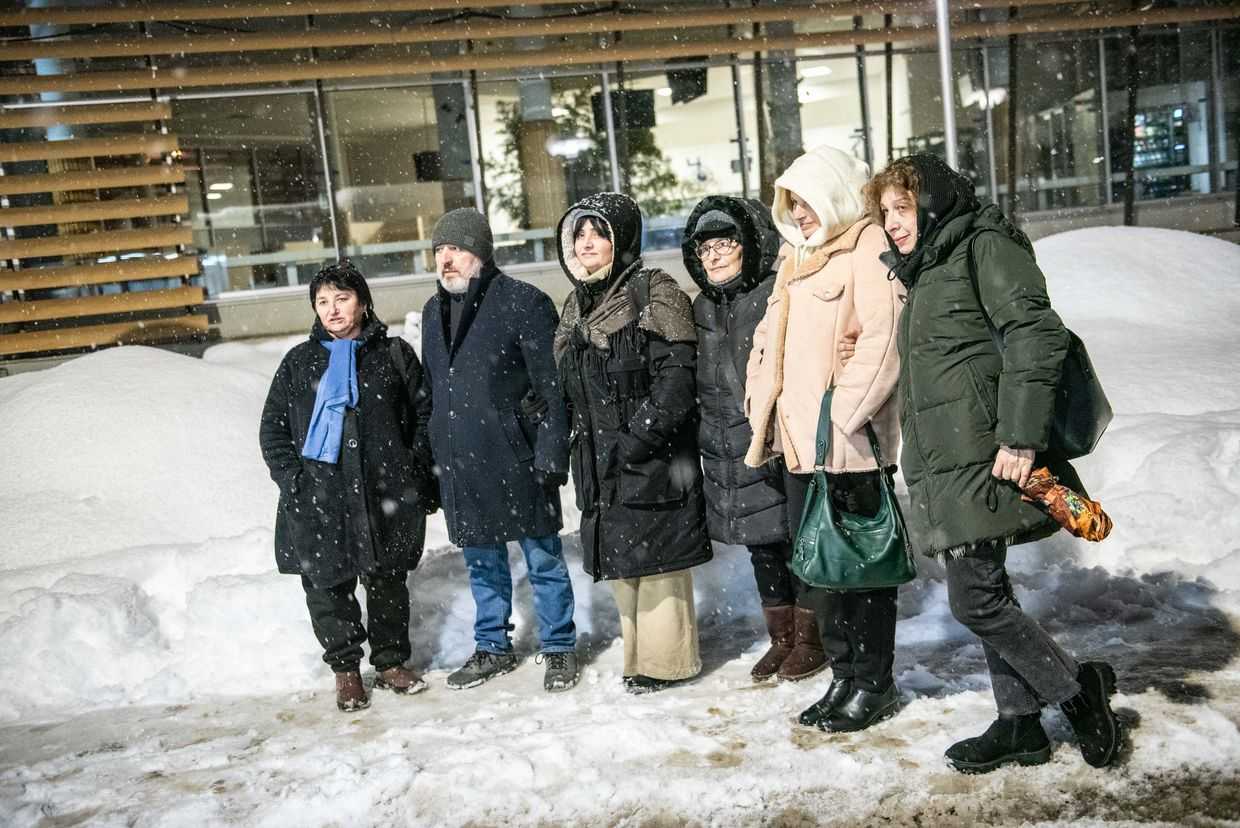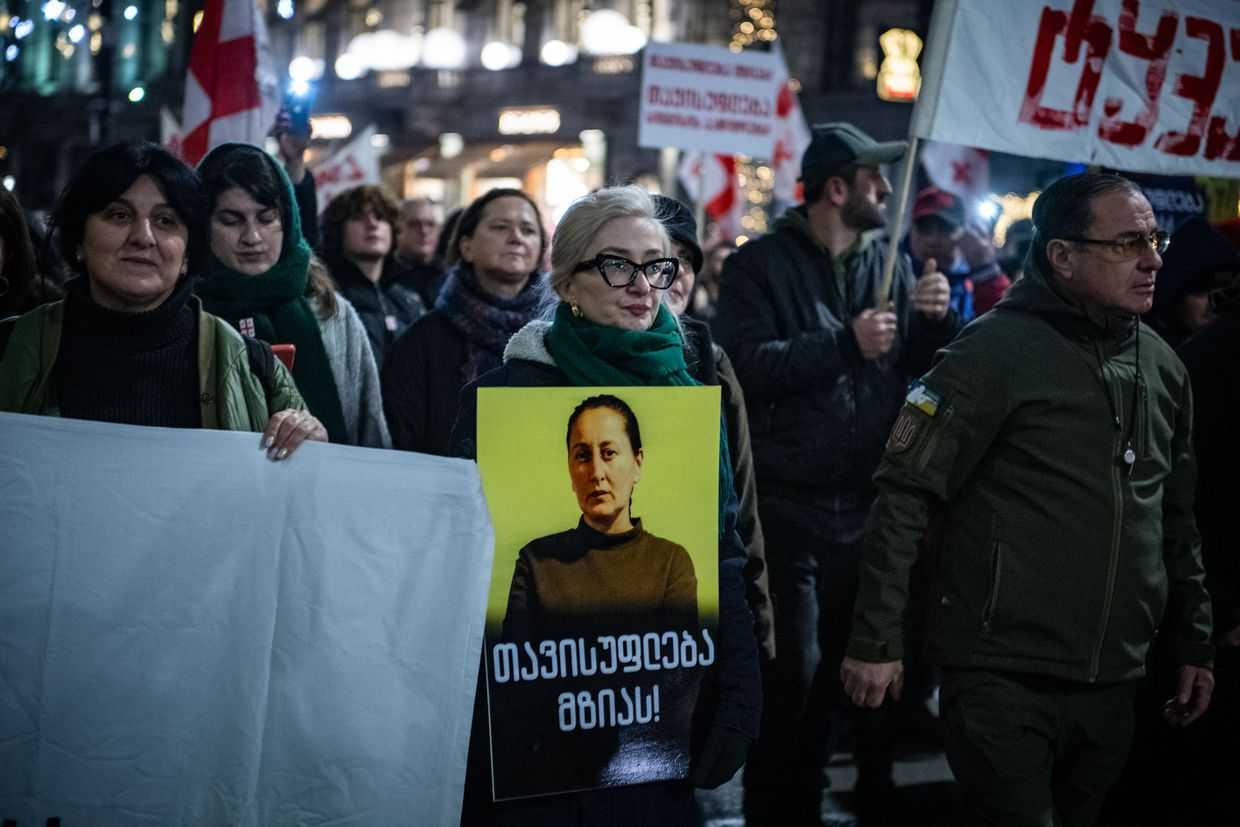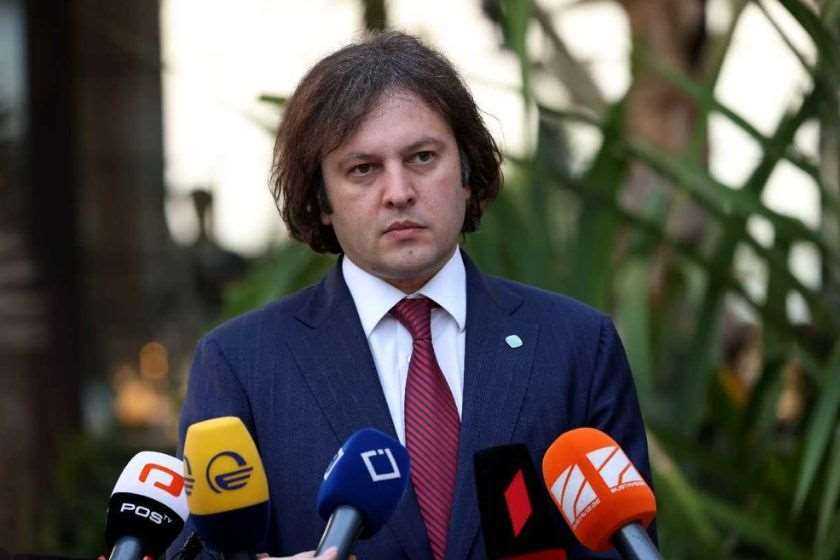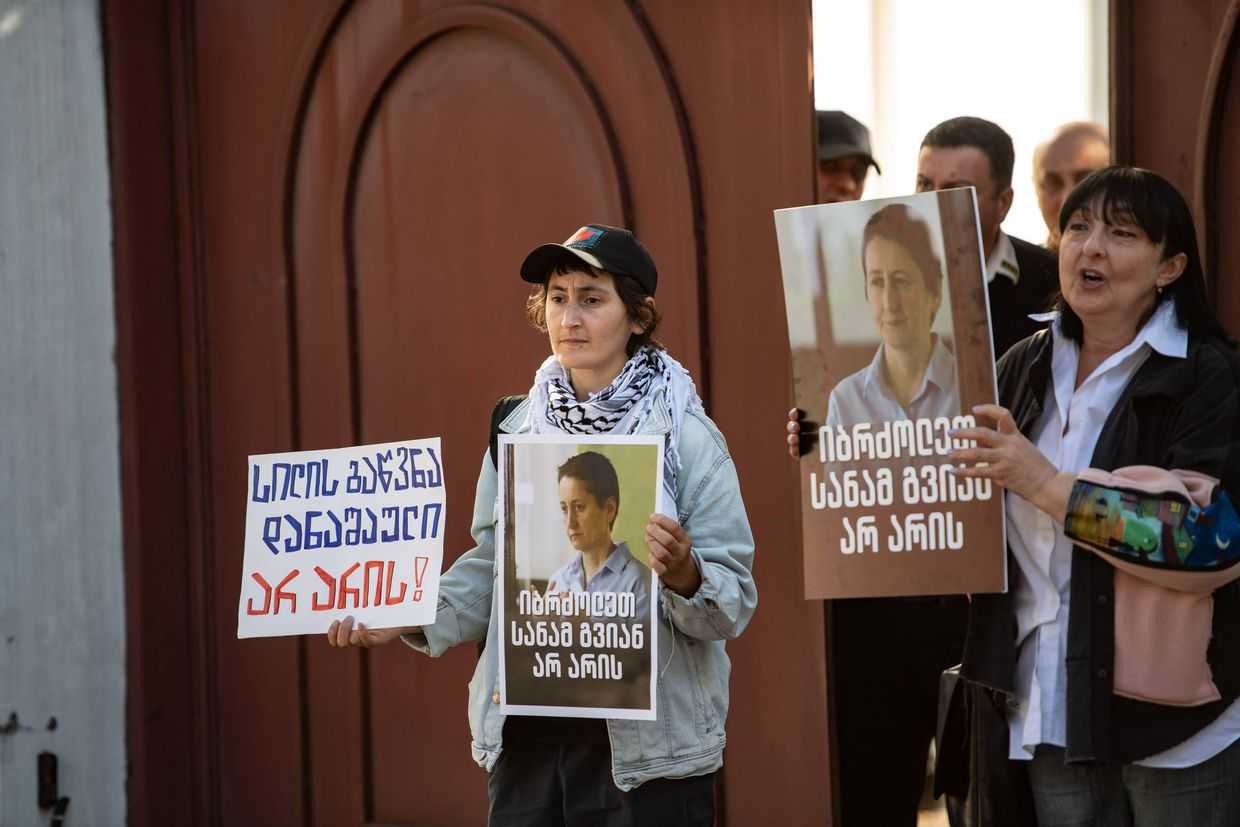‘She represents the free press’ — Imprisoned Georgian media founder’s final statement delayed

The closing statement of Mzia Amaghlobeli, the detained founder of the Georgian media outlets Batumelebi and Netgazeti, has been postponed to 4 August. Amaghlobeli herself requested the postponement after Friday’s exhausting session that lasted more than nine hours in Batumi City Court.
As part of a widely known case, Amaghlobeli faces up to seven years in prison for slapping a Batumi police chief — an act the authorities have classified as an ‘assault on a police officer’.
Due to expectations that a verdict might accompany Amaghlobeli’s final statement, Friday’s hearing took place amid widespread media presence and mobilisation of her supporters.
The detainee’s lawyer, Maia Mtsariashvili, delivered a closing argument that lasted over seven hours, followed by statements from other defence lawyers and remarks from the prosecutors.
Whether the ruling will come on Monday remains unclear.
A demonstration in support of Amaghlobeli took place throughout the day in front of the court building. Opposition politicians, including former President Salome Zourabichvili were present at the scene.
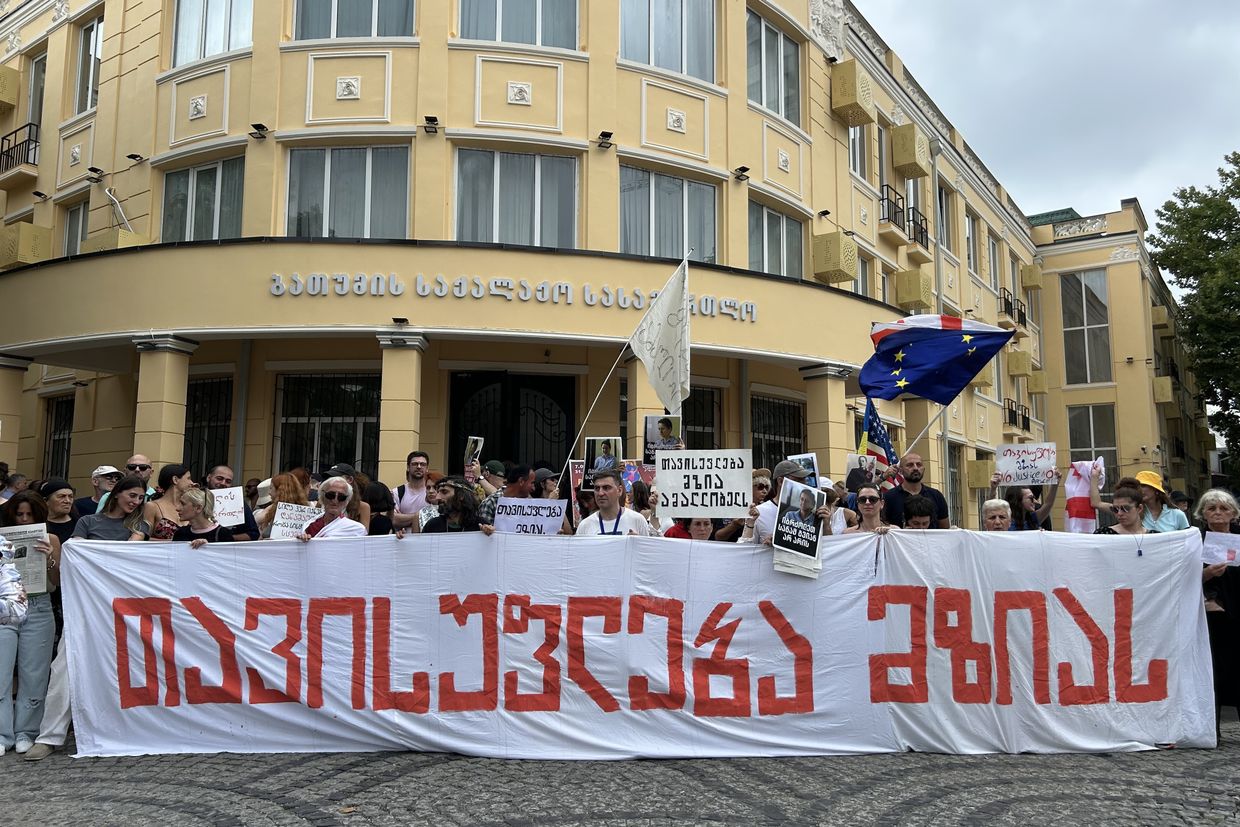
As she was escorted out of the courthouse by guards after the hearing, Amaghlobeli was seen off by her supporters with applause. Throughout the day, slogans such as ‘Freedom for Mzia’, ‘Burn the oligarchy’, and ‘Freedom for the regime’s hostages’ were heard.
Amaghlobeli was first detained at night on 11 January after putting a sticker calling for a nationwide strike on a fence outside a police station in Batumi. She had done so in protest against the detention of her colleague, Tsiala Katamidze, for putting up the same sticker on the street.
Shortly after being released, she was again arrested after slapping Batumi Police Chief Irakli Dgebuadze during a heated exchange outside the police station.
Throughout the court proceedings, Amaghlobeli spoke about the circumstances leading up to the incident, including degrading treatment by the police, as well as the abuse she faced following her arrest after slapping the officer. This included being spat in the face by Dgebuadze, subjected to verbal abuse, and being denied access to a toilet.
Mzia Amaglobelis hearing started at 1pm and ended now. Verdict is postponed till 4 August. Hundreds greeted her at the court with high police mobilisation. People applauded. You can see her hand greeting to the supporters from the penitntentiary car. pic.twitter.com/eyNdQMr7MP
— Mariam Nikuradze (@mari_nikuradze) August 1, 2025
Amaghlobeli’s case has been widely condemned by critics both in Georgia and abroad as politically motivated, linked to her work as a media personality.
Many have raised concerns about the disproportionality of the punishment, with Batumelebi referencing several past cases from the archives in which Georgia’s Supreme Court did not classify even severe physical attacks on police officers — including assaults with glass bottle and knife — as ‘assaulting a police officer’, handing down much lighter sentences instead.
In a joint statement a day before the Friday hearing, 14 international press freedom groups, including Reporters Without Borders and the Committee to Protect Journalists, called for an end to Amaghlobeli’s ‘discriminatory and excessive persecution’, demanding her immediate release.
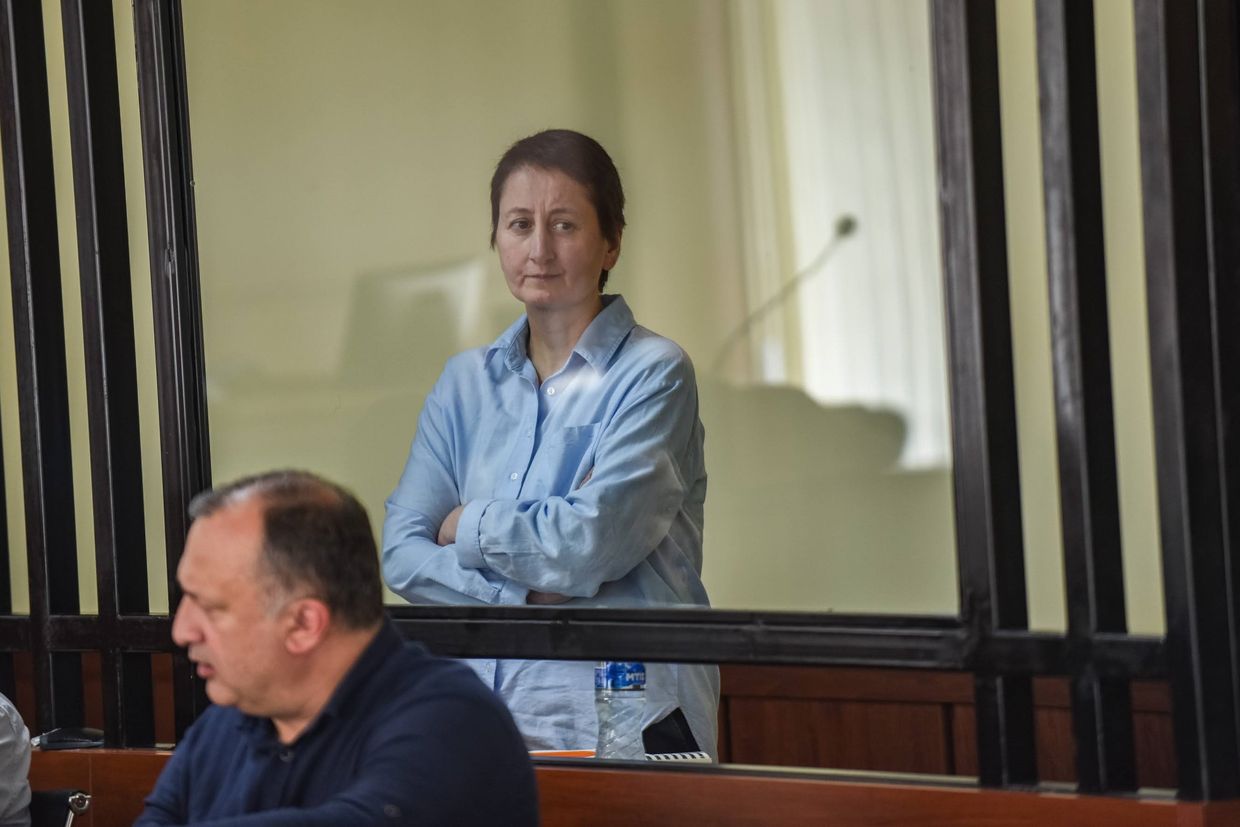
Critics pointed to the video of Amaghlobeli’s arrest following the slapping incident as early evidence that her punishment was premeditated — the footage showed Dgebuadze insulting and threatening her.
‘I fucking swear, I’ll arrest her under the criminal [code] […] I’ll fuck her mother’s pussy’, Dgebuadze could be heard saying.
After the footage was shown during another hearing in May, Dgebuadze stated that the voice in the recording ‘sounds like’ his. He then added that he might have used obscene language, but only for the purpose of ‘describing the fact’. He did not confirm the actions described by Amaghlobeli, including spitting.
Following the arrest, Georgian Dream officials — including Prime Minister Irakli Kobakhidze — promoted the theory that Amaghlobeli was acting on prior instructions as part of a plan to discredit the Georgian police. In May, Amaghlobeli’s lawyers announced they would sue the prime minister for defamation over those claims.
‘She represents the free press’
Amaghlobeli’s trial has played out with significant attention from Georgian civil society, and has been closely monitored by EU politicians and diplomats. According to Netgazeti, Czech Ambassador to Georgia, along with representatives of the diplomatic missions of the EU, France, Lithuania, Norway, the Netherlands, Sweden, and Poland, attended the latest hearing.
For many of those protesting the Georgian Dream policies for almost 250 days, Amaghlobeli has become a symbol of government repression and attacks on the media and civil society.
On Friday, Amaghlobeli’s colleagues, friends, and supporters came not only from Batumi and the wider Adjara region but also from Tbilisi and other parts of Georgia.
‘Our support and the knowledge that we’re here will make [Mzia] stronger in standing up to the regime’, said Irma Gordeladze, a schoolteacher and civic activist who had traveled to Batumi from Guria, a neighboring region.
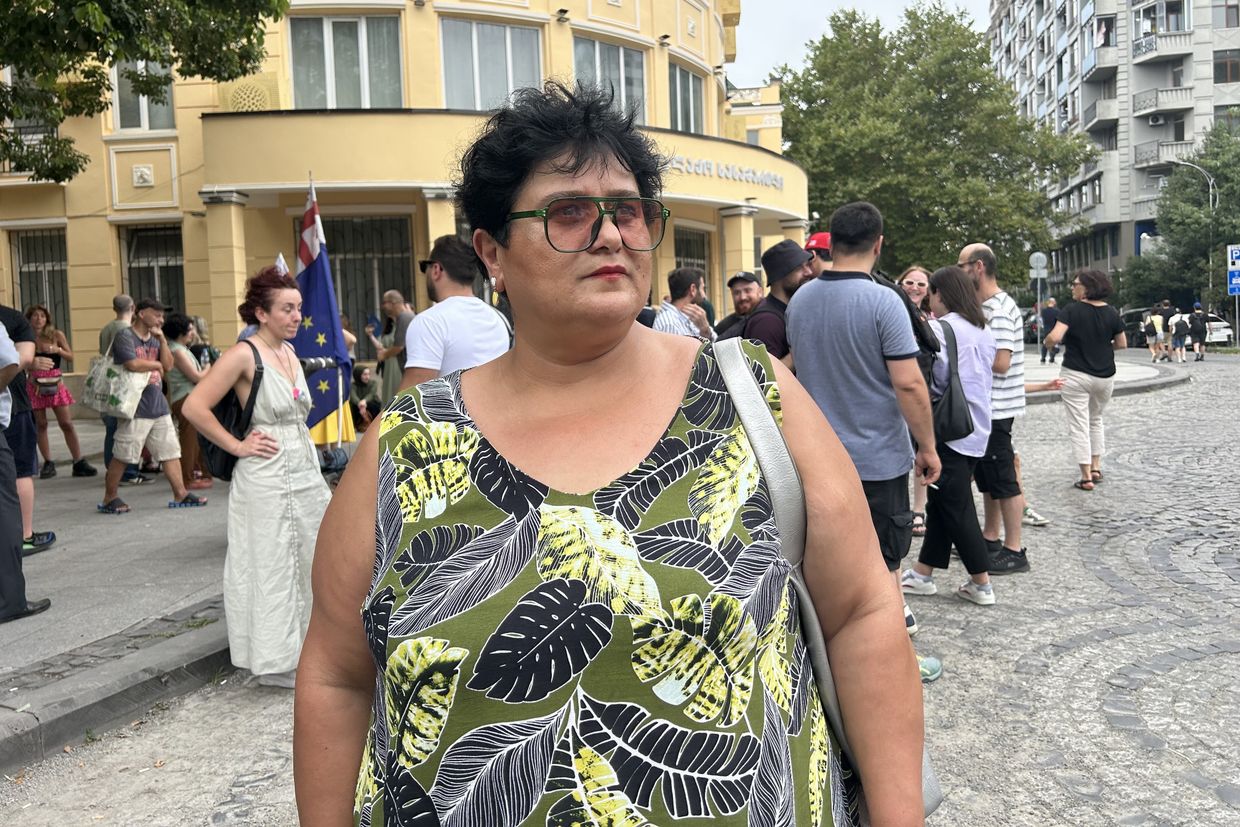
Gordeladze believes the state has chosen to ‘make an example’ of a media personality in an attempt to display its power and spread fear in society.
‘This is what all regimes do. But if we don’t stop and keep fighting to the end, this regime will be dismantled’, she added.
Among those waiting near the courthouse for a possible verdict was Ioane Romanadze, a Tbilisi-based TikTok influencer originally from Kobuleti, a town near Batumi. He expressed concern that what’s happening in the Georgian judicial system could soon extend across the country.
‘Mzia isn’t just one person behind bars — she represents the entire free press’, Romanadze said.
‘This trial could become a metaphor for our whole country: Mzia Amaghlobeli could come to represent the Georgian people, locked inside a fenced-off country, whose voice can no longer be heard by the West or by any civilisation. And the regime could come for everyone just as it has come for her’, he added.
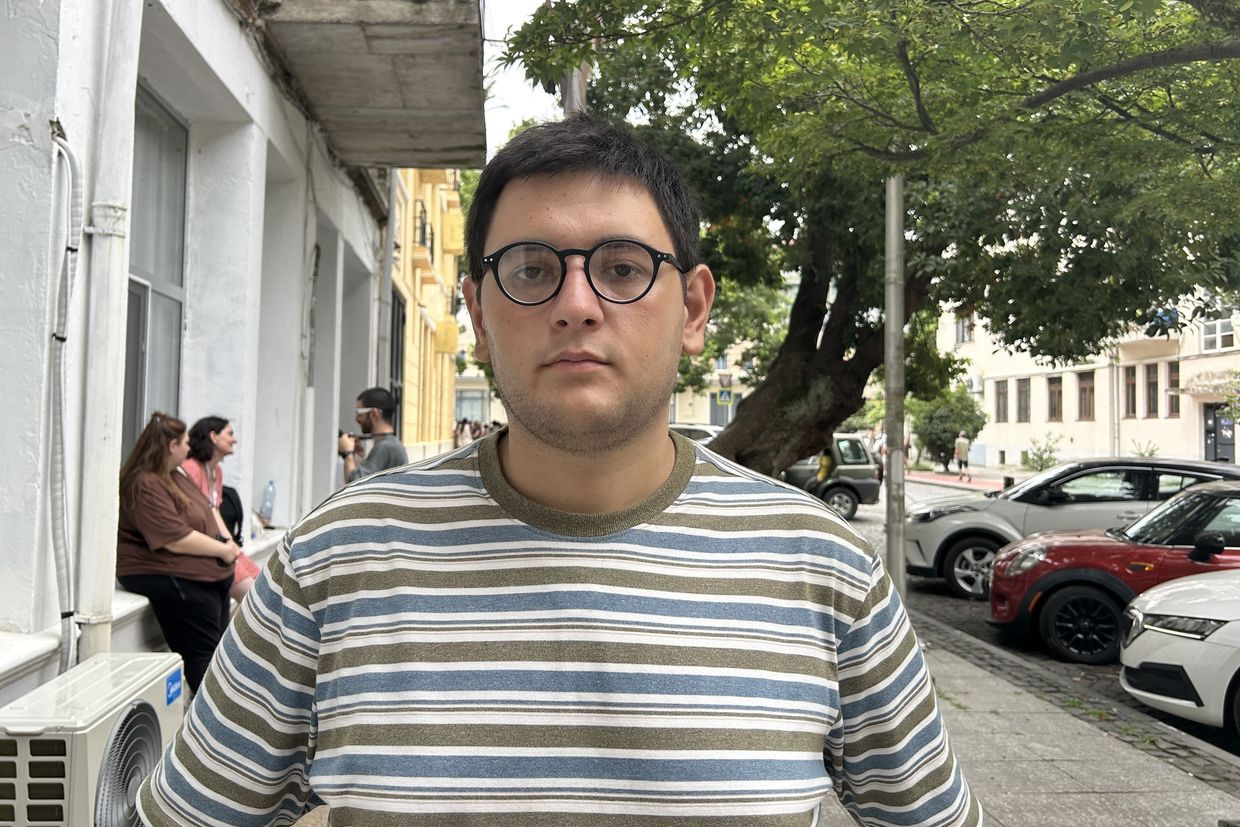
Romanadze thinks that if Amaghlobeli is convicted, ‘in reality, it will be the conviction of Georgian people as a whole — the people she has worked for over a quarter of a century’.
‘She was doing [journalism] before I was born, while I was in school, and even now, when I’m an adult voter, she’s still doing the work that serves my well-being’, he said.
Amaghlobeli’s supporters in Batumi included people whose relatives are also facing long prison terms. Just before the hearing began, mothers of protesters arrested in the first phase of ongoing anti-government rallies appeared hand-in-hand outside the courthouse, wearing T-shirts printed with their children’s faces.
‘Mzia was mistreated without reason’, said Nargiz Davitadze, a Batumi resident whose 20-year-old son Zviad Tsetskhladze faces up to nine years in prison for ‘organising a group violence’ during protests.
‘She was humiliated, they spat at her. The police chief himself should be in prison for that disgraceful act’, the prisoner’s mother added.
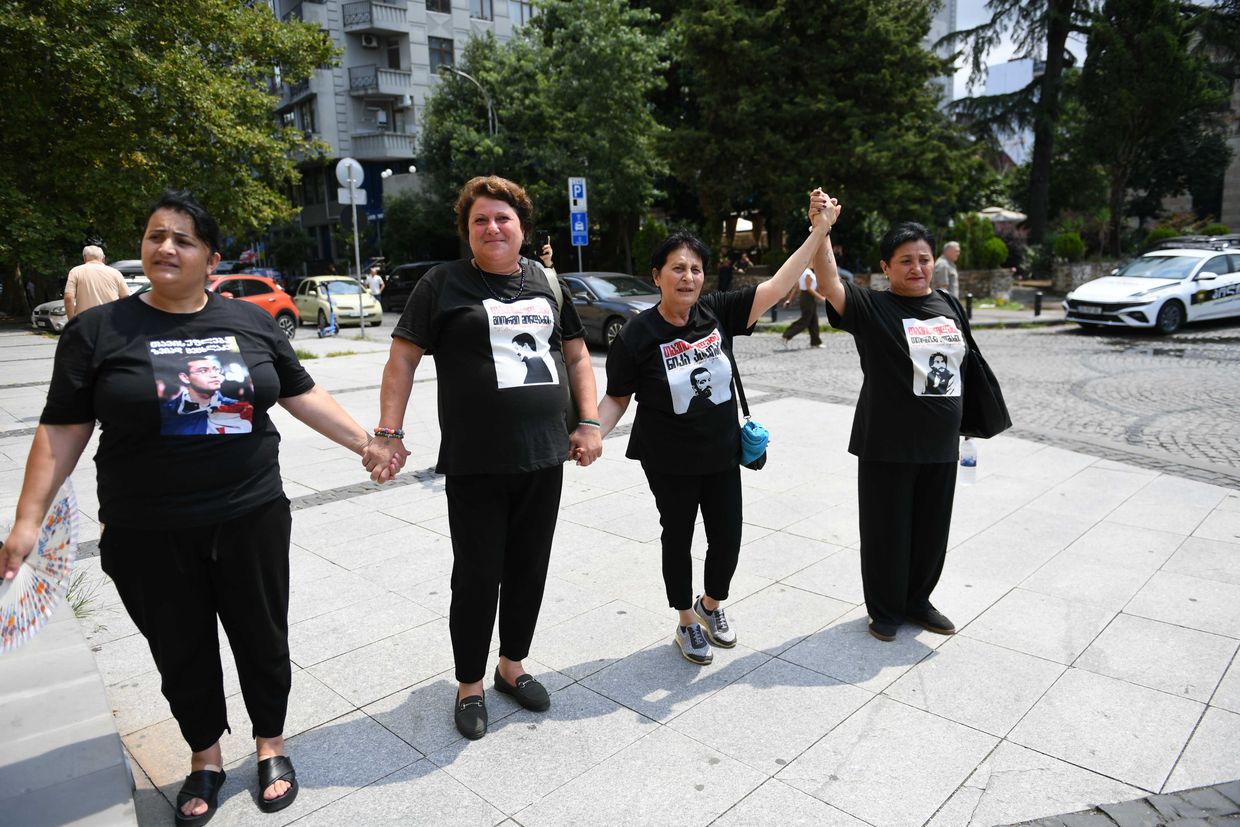
Davitadze believes that in Georgia’s courts, it is not judges but the political authorities who deliver verdicts:
‘The judiciary should be independent. We’ve been fighting for that for a long time and we’re still waiting’.





